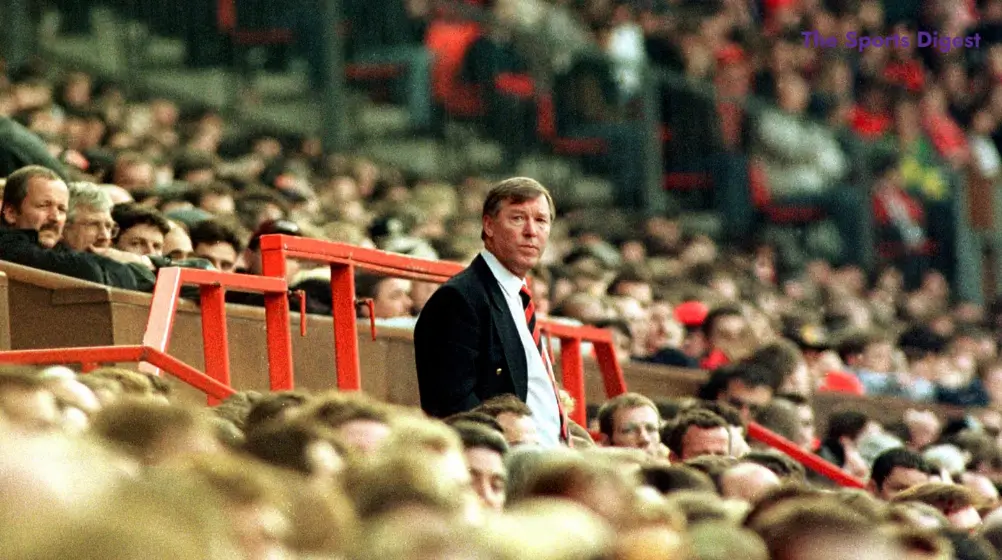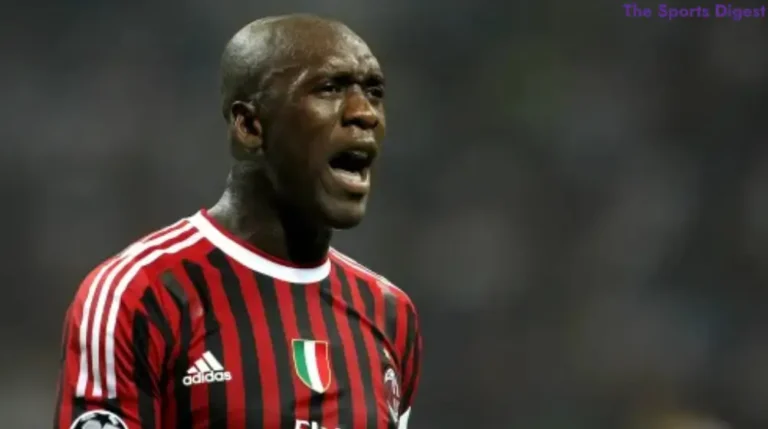Alex Ferguson: Britain’s Greatest Winner
The words tumbled out of Kevin Keegan, his finger jabbing toward the camera, face flushed with emotion, voice cracking under the strain of a title race slipping from his grasp. This raw, unfiltered moment from April 1996 stands as perhaps the most visceral evidence of Sir Alex Ferguson‘s most potent weapon: his ability to crawl inside the minds of his opponents and unsettle them from within.
Newcastle United’s once-commanding 12-point lead in the Premier League had been systematically dismantled, not just by Manchester United’s relentless pursuit on the pitch, but by Ferguson’s calculated psychological warfare off it. His suggestion that teams might not try as hard against Newcastle as they did against his own side was a masterclass in what British football would come to know as “mind games” – the art of unsettling rivals through nothing more than carefully chosen words.
Keegan’s emotional implosion on live television marked the symbolic end of Newcastle’s title challenge. Alex Ferguson, watching from a distance, need not have kicked a ball or issued a tactical instruction to claim one of his most significant victories. The battle had been won in the mind long before it concluded on the pitch.
Table of Contents
II. The Foundations of Success: Belief and Character
What many observers misunderstood about Ferguson’s psychological tactics was that they weren’t mere ploys or strategies devised in isolation. They stemmed from something far more fundamental: a steadfast belief in his cause that bordered on the religious. Alex Ferguson didn’t engage in mind games simply to gain an advantage; he did so because he genuinely believed in the righteousness of his position and the injustice of any challenge to his authority or his team’s supremacy.
This unwavering self-belief formed the cornerstone of Ferguson’s greatness. While tactical innovations can be copied and playing styles replicated, the pure brute force of his character proved impossible to duplicate. He cultivated an aura that simultaneously instilled absolute belief in his players and palpable fear in his opponents – a psychological advantage that translated directly into points and trophies.
Fortune and circumstance undoubtedly played their parts in Ferguson’s unprecedented success. The emergence of the Premier League and Manchester United’s commercial dominance provided the resources needed for sustained achievement. Yet these favorable conditions would have meant little without Ferguson’s utterly unshakeable self-confidence – the driving force behind every trophy, every comeback, and every dynasty he built and rebuilt over nearly four decades in management.
III. The Making of a Winner: Early Life and Playing Days
This indomitable spirit wasn’t manufactured in the corridors of Old Trafford but forged in the working-class environment of Govan, Glasgow. Born to shipyard workers in 1941, Ferguson’s upbringing instilled values of hard work, resilience, and a fierce determination to succeed against the odds – qualities that would define his managerial philosophy.
As a player, Alex Ferguson was characterized more by grit, aggression, and determination than by natural talent. A combative center-forward, he scored prolifically for several Scottish clubs, most notably Dunfermline Athletic and Rangers, though his playing career never reached the heights his managerial one would later scale.
His time at Rangers – the club he had supported as a boy – proved particularly formative, though not always in positive ways. Despite scoring a hat-trick against Celtic in the 1969 Scottish Cup Final, his relationship with Rangers soured, in part due to scrutiny over his marriage to Cathy Holding, who was Catholic. This experience of perceived injustice and unfair treatment would fuel Ferguson’s “us against them” mentality throughout his managerial career.
A pivotal moment in his early life came when, contemplating emigration to Canada after struggling to establish himself as a footballer, his mother intervened, convincing him to persevere with his sporting ambitions. This decision, seemingly minor at the time, would alter the course of British football history.
IV. The Aspiring Manager: Early Coaching Experiences
Even during his playing days, Ferguson’s eyes were fixed on management. He obtained his coaching badges early and gained initial experience as player-coach at Falkirk, where his leadership qualities began to emerge despite the limited role.
His first full-time managerial position came at the humble surroundings of East Stirlingshire in 1974, where he immediately established the exacting standards that would become his hallmark. Working with a squad of part-time players and minimal resources, Alex Ferguson nonetheless demanded professionalism and commitment. It was here he first engaged with the media as a tool to gain psychological advantage, setting a pattern that would continue throughout his career.
After just four months at East Stirlingshire, Alex Ferguson moved to St. Mirren, where his managerial reputation truly began to take shape. Taking over a struggling Second Division side, he transformed them into First Division champions within four years. This remarkable achievement came through a combination of shrewd recruitment, tactical discipline, and the development of young talent – approaches that would define his later successes.
However, his tenure at St. Mirren ended in controversy when he was sacked for breach of contract in 1978, with chairman Willie Todd famously stating Alex Ferguson had “no managerial ability.” This dismissal – the only sacking of Ferguson’s managerial career – stung deeply, especially as it came despite his obvious success. The sense of injustice further hardened his resolve and reinforced his combative approach to authority.
V. Breaking the Mould at Aberdeen: Challenging the Established Order
When Aberdeen appointed Alex Ferguson in 1978, they presented him with a challenge that would become a template for his career: overcoming entrenched power. Scottish football had long been dominated by the Glasgow giants, Rangers and Celtic, with Aberdeen seen as perennial also-rans despite their status as one of Scotland’s biggest clubs.
Ferguson’s arrival was met with skepticism from fans who questioned whether this relatively unproven manager could challenge the established order. His response was to implement a strategy that would become his signature: uniting the club against a perceived common enemy. In this case, he focused on what he portrayed as bias from the Glasgow-based media, fostering a siege mentality that positioned Aberdeen as unfairly treated underdogs.
His early days at Aberdeen revealed a man-management style that was still developing, characterized by confrontation rather than the more nuanced approach he would later adopt. Clashes with established players like Willie Miller and Joe Harper highlighted Ferguson’s refusal to tolerate any challenge to his authority, but also taught him valuable lessons about handling different personalities.
The first season at Aberdeen tested Ferguson’s resilience in ways that extended beyond football. He fought an unfair dismissal tribunal against St. Mirren while coping with the death of his father – personal challenges that might have derailed a lesser character but which Alex Ferguson channeled into his professional determination.
VI. Evolution and Enduring Principles: The Human Touch
What marked Ferguson’s greatness was not just his initial formula for success but his ability to evolve over four decades in management. The abrasive young manager who confronted players head-on at Aberdeen developed into a more sophisticated leader who could tailor his approach to different personalities, as evidenced by his handling of Eric Cantona at Manchester United.
While Ferguson’s fierce public persona often dominated perceptions, those who worked closely with him frequently spoke of moments of unexpected warmth and generosity. His genuine interest in players’ families, his support during personal difficulties, and his loyalty to staff created bonds that transcended professional relationships. This human touch, often overlooked amid tales of his famous “hairdryer treatment,” proved just as important to his success as his more publicized confrontational style.
VII. Legacy Forged in Success: Aberdeen and Beyond
Ferguson’s transformation of Aberdeen culminated in extraordinary success, breaking the Old Firm duopoly in Scotland with three league titles, four Scottish Cups, and most remarkably, the European Cup Winners’ Cup triumph over Real Madrid in 1983. This achievement – leading a provincial Scottish club to European glory – remains perhaps his most impressive feat in pure footballing terms.
When he arrived at Manchester United in November 1986, Alex Ferguson faced a similar challenge to the one he had conquered in Scotland: overthrowing Liverpool’s dominance of English football. The task proved even more daunting than expected, with initial struggles testing the club’s patience. That Manchester United stood by Ferguson during these difficult early years – something that seems inconceivable in today’s football environment – proved crucial to their subsequent decades of success.
His confrontational approach and win-at-all-costs mentality occasionally drew criticism, with some longtime Manchester United supporters feeling it marked a departure from the gentlemanly values associated with Sir Matt Busby. Yet what Ferguson understood better than most was that success in modern football required not just skill but an edge – a ruthlessness that separated champions from contenders.
VIII. The Essence of Greatness: Redefining Winning
Ferguson’s greatness ultimately lay not in tactical innovation or coaching methodology, though he excelled in both areas. His true genius was in redefining what winning meant – elevating it from a tactical or technical exercise to an expression of will and belief. Under Ferguson, winning became an inevitable outcome of proper preparation, unwavering conviction, and psychological dominance.
His “me against the world” mentality – forged in the shipyards of Govan, hardened by perceived injustices throughout his career, and perfected over decades of competition – created a force that transformed not just Manchester United but British football itself. Alex Ferguson didn’t just accumulate trophies; he altered how success was pursued and defined.
In the end, what made Sir Alex Ferguson Britain’s greatest winner wasn’t just the unprecedented collection of silverware – the 13 Premier League titles, five FA Cups, two Champions Leagues, and countless other honors. It was his ability to instill in players, staff, and supporters the absolute certainty that victory wasn’t just possible but inevitable, simply because Alex Ferguson willed it so. In sport, where confidence often marks the narrow margin between success and failure, no one manufactured belief more effectively than the tough, uncompromising Scot who refused to accept second place.
As Keegan’s emotional outburst demonstrated all those years ago, Ferguson’s greatest triumph wasn’t just beating his opponents – it was convincing them they were beaten before the contest had even begun.
Have you ever read an article like this?
There are no reviews yet. Be the first one to write one.






